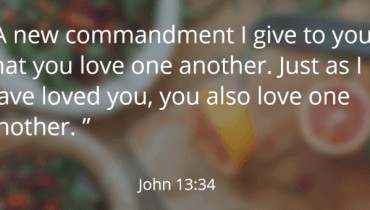Weakness is the doorway to understanding, and understanding is the doorway to compassion and ministry.”
~ Clayton King in Stronger: How Hard Times Reveal God’s Greatest Power
There are many people today who live double lives.
Some live one life and then show a different life online. Selfies are taken with friends full of smiles. Accomplishments are bragged about frequently. Even sharing funny videos communicates a continual sense of humor.
But many of these online profiles don’t reflect reality. The cameras are put away when the smiles disappear. Posting is silent if failure or embarrassment occurs. Even if thoughts are posted, they reflect what they want people to think rather than what is really going on in real life.
Go to many churches and you will also find people leading double lives. Weaknesses, difficulties and failures in real life are hidden from others. They do it out of fear of not being accepted and being excluded from friendships and service.
Do you see the problem with this?
The Strong Admit to Weakness
I am reading Stronger: How Hard Times Reveal God’s Greatest Power by Clayton King. In his book he states:
“Weakness is the doorway to understanding, and understanding is the doorway to compassion and ministry.”
We all have areas of weakness. Admitting and working through our weaknesses is a necessary condition to minister to others effectively.
You make yourself vulnerable when letting others know about your weaknesses. You are taking a risk. But strong leaders know the value of doing this. They put the needs of others above themselves.
Want some examples of weaknesses? A few of mine that I have discussed in small groups are:
- My father disowned me
- I suffered from extreme burnout
- My behavior got ugly at a time when family life was very difficult
What are your weaknesses?
People Respond to Authenticity
When you stop living a lie and become authentic, people respond. People are helped.
I don’t believe the members that come together in a small group is ever an accident. I have observed many times when someone admits to a weakness, others immediately open up in the group who have struggled or are struggling with that same weakness. Then trust and support between members gets stronger. The result of these connections is life-changing.
It Starts With the Group Leader
Do you now understand the power of weakness and how important it is for your small group?
Group members look to the group leader to be an example. Group leaders who get authentic first will encourage the rest of the group members to do the same.
One way I have experienced this in a small group is to have each member share their life story, usually one at each meeting. If the group leader goes first and shares both the good and the bad, others will use that example to tell their story at future gatherings. This is also a relatively quick way to learn about each other and build trust.
Question: What other factors should be considered before deciding on the type of small groups to start? You can leave a comment by clicking here.
Get more stuff like this
Subscribe to our mailing list and get interesting stuff and updates to your email inbox.
Thank you for subscribing.
Something went wrong.


Hi Roger,
I agree with you, that the strong admit weakness. Admitting weakness and being authentic makes for a great leader as well as for a greater person.
When deciding on the type of small group to have, I guess one would center it around a certain topic with group members having a common goal.
I’m glad you stopped by my site and left a comment because it led me to your site. 🙂 Your information is definitely of interest to me.
Take care,
Evelyn
Thanks Evelyn. I look forward to sharing ideas over time with you.